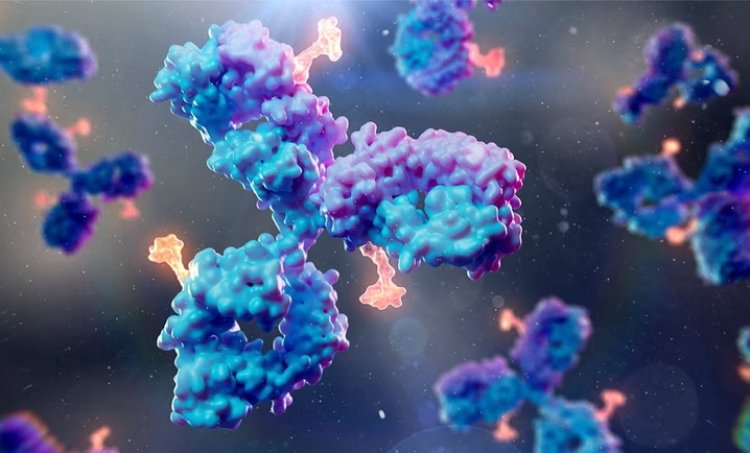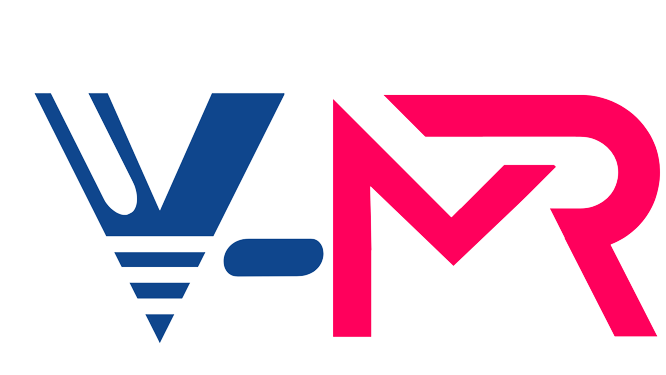Antibody Drug Conjugates (ADCs) Market: Growth, Trends, Challenges & Future Opportunities (2023–2030)
Explore the booming Antibody Drug Conjugates (ADCs) market, key growth drivers, challenges, regional trends, competitive landscape, and future opportunities. Insights for 2023–2030.

Key Takeaways
- The global Antibody Drug Conjugates (ADCs) market was valued at USD 4.75 billion in 2022 and is projected to reach USD 18.84 billion by 2030, growing at a CAGR of 18.80%.
- Market growth is driven by rising cancer prevalence, increased R&D investments, and advancements in molecular biology.
- North America leads the market, while Asia Pacific is expected to witness the fastest growth.
- Key challenges include toxicity concerns, technical complexities, and high production costs.
- Major players are investing in innovation, strategic partnerships, and AI integration to stay competitive.
- Future opportunities lie in personalized medicine, cleavable linker technology, and AI-driven drug development.
Antibody Drug Conjugates Market Overview
Antibody Drug Conjugates (ADCs) represent a revolutionary class of biopharmaceuticals that combine the targeting capabilities of monoclonal antibodies with the potent cell-killing ability of cytotoxic drugs. This unique mechanism allows ADCs to deliver chemotherapy directly to cancer cells, minimizing damage to healthy tissues and improving patient outcomes. According to analysts at Vantage Market Research, the global ADCs market was valued at USD 4.75 billion in 2022 and is projected to attain a value of USD 18.84 billion by 2030, reflecting a robust CAGR of 18.80% during the forecast period of 2023–2030.
The market’s impressive growth trajectory is underpinned by several factors. The increasing incidence of cancer worldwide, coupled with the urgent need for more effective and less toxic therapies, has accelerated the adoption of ADCs in oncology. Furthermore, the expanding pipeline of ADC candidates, supported by significant investments from both pharmaceutical giants and biotech startups, is fueling innovation and market expansion.
Key players such as Roche, Pfizer, AstraZeneca, Gilead Sciences, and Seagen (formerly Seattle Genetics) are at the forefront of ADC development, leveraging their expertise in antibody engineering, linker technology, and payload optimization. These companies are not only driving product approvals but also shaping the competitive landscape through strategic collaborations, mergers, and acquisitions.
The market is also witnessing a shift towards the development of next-generation ADCs with improved safety profiles, enhanced efficacy, and broader therapeutic applications beyond oncology, including autoimmune and infectious diseases. As regulatory agencies become more familiar with ADCs, the approval process is expected to become more streamlined, further accelerating market growth. the ADCs market is poised for significant expansion, driven by scientific advancements, unmet clinical needs, and the strategic initiatives of key industry players. The coming years will likely see a surge in new product launches, increased adoption in clinical practice, and a broader impact on global healthcare.
Key Drivers of Market Growth
The rapid expansion of the Antibody Drug Conjugates market is fueled by a confluence of scientific, clinical, and commercial drivers. Foremost among these is the rising global burden of cancer. According to the World Health Organization, cancer remains one of the leading causes of morbidity and mortality worldwide, with millions of new cases diagnosed each year. This escalating prevalence has intensified the demand for innovative therapies that can offer improved efficacy with reduced side effects.
Investment in research and development (R&D) is another critical driver. Pharmaceutical companies and academic institutions are pouring resources into the discovery and optimization of novel ADCs. These investments are not only expanding the pipeline of potential therapies but also fostering advancements in antibody engineering, linker chemistry, and payload selection. The result is a new generation of ADCs with enhanced specificity, stability, and therapeutic index.
Advancements in molecular biology and biotechnology have also played a pivotal role. Techniques such as next-generation sequencing, high-throughput screening, and bioinformatics are enabling researchers to identify novel targets, design more effective antibodies, and develop innovative linker technologies. These scientific breakthroughs are translating into ADCs that are more potent, less toxic, and capable of overcoming resistance mechanisms.
The adoption of combination therapies is further propelling market growth. By combining ADCs with other modalities such as immune checkpoint inhibitors, targeted therapies, or traditional chemotherapeutics, clinicians are achieving synergistic effects that enhance treatment outcomes. This approach is particularly promising in the management of refractory or relapsed cancers, where single-agent therapies often fall short.
Finally, the growing recognition of ADCs’ potential beyond oncology is opening new avenues for market expansion. Researchers are exploring the use of ADCs in autoimmune diseases, infectious diseases, and other therapeutic areas, broadening the scope and impact of this technology. In essence, the ADCs market is being driven by a dynamic interplay of clinical need, scientific innovation, and strategic investment, setting the stage for sustained growth in the years ahead.
Challenges Facing the Antibody Drug Conjugates Market
Despite the remarkable progress and promise of Antibody Drug Conjugates, the market faces several significant challenges that could impede its growth. One of the foremost concerns is the issue of side effects and toxicity. While ADCs are designed to selectively target cancer cells, off-target effects and the release of cytotoxic payloads in healthy tissues can lead to adverse events such as neutropenia, thrombocytopenia, and liver toxicity. Managing these side effects requires careful patient selection, dosing strategies, and ongoing monitoring, which can complicate clinical practice.
Technical complexities in the development and manufacturing of ADCs present another major hurdle. The process of conjugating antibodies to cytotoxic drugs via chemical linkers is highly intricate, requiring precise control over conjugation ratios, stability, and homogeneity. Variability in these parameters can impact the safety, efficacy, and reproducibility of the final product. Moreover, the scale-up of ADC manufacturing from laboratory to commercial production poses additional challenges related to yield, purity, and cost-effectiveness.
Reimbursement and high production costs further complicate the market landscape. ADCs are among the most expensive cancer therapies, with prices often exceeding hundreds of thousands of dollars per patient. Securing reimbursement from payers and healthcare systems is a complex process, particularly in regions with constrained healthcare budgets. The high cost of goods, driven by the complexity of manufacturing and the need for specialized facilities, limits access to these therapies and poses a barrier to widespread adoption.
Regulatory challenges also persist. The unique structure and mechanism of ADCs require specialized regulatory pathways and rigorous evaluation of safety, efficacy, and quality. Navigating these regulatory requirements can be time-consuming and resource-intensive, particularly for smaller companies with limited experience in biologics development.
Finally, the competitive landscape is becoming increasingly crowded, with numerous companies vying for a share of the market. This intensifies the pressure to innovate, differentiate products, and demonstrate clear clinical and economic value. while the ADCs market holds immense promise, addressing these challenges will be critical to realizing its full potential and ensuring that patients worldwide can benefit from these groundbreaking therapies.
Regional Market Insights and Trends
The global Antibody Drug Conjugates market exhibits distinct regional dynamics, shaped by differences in healthcare infrastructure, regulatory environments, disease prevalence, and investment levels. North America, particularly the United States, currently dominates the ADCs market, accounting for the largest share of global revenues. This leadership is attributed to several factors, including a robust biopharmaceutical industry, advanced research capabilities, and a favorable regulatory framework that supports innovation and rapid product approvals.
The presence of leading ADC developers such as Pfizer, Gilead Sciences, and Seagen in North America has further cemented the region’s position at the forefront of ADC research and commercialization. Additionally, strong collaborations between academic institutions, research organizations, and industry players have accelerated the translation of scientific discoveries into clinical applications.
Europe represents another significant market for ADCs, driven by increasing cancer incidence, supportive government policies, and a growing emphasis on precision medicine. Countries such as Germany, the United Kingdom, and France are investing heavily in oncology research and have established centers of excellence for ADC development. The European Medicines Agency (EMA) has also played a proactive role in facilitating the approval and adoption of innovative therapies.
The Asia Pacific region is poised for rapid growth in the coming years, fueled by rising healthcare expenditures, expanding access to advanced treatments, and a burgeoning biotechnology sector. Countries like China, Japan, and South Korea are emerging as key hubs for ADC research, with local companies entering the market and forging partnerships with global players. The increasing prevalence of cancer in the region, coupled with government initiatives to improve cancer care, is driving demand for novel therapies such as ADCs.
Latin America and the Middle East & Africa are also witnessing gradual adoption of ADCs, although market penetration remains limited by factors such as cost, infrastructure, and regulatory challenges. Nonetheless, these regions represent untapped opportunities for future growth as healthcare systems evolve and access to innovative therapies improves.
Key disease segments driving regional innovations include breast cancer, lymphoma, and lung cancer, with ongoing research exploring the application of ADCs in other malignancies and non-oncological indications. Overall, regional trends in the ADCs market reflect a complex interplay of scientific, economic, and policy factors, with North America leading the way and Asia Pacific emerging as a key growth engine.
Competitive Landscape and Key Players
The Antibody Drug Conjugates market is characterized by intense competition, rapid innovation, and a dynamic landscape shaped by the activities of leading biopharmaceutical companies. Major players such as Roche, Pfizer, AstraZeneca, Gilead Sciences, and Seagen have established themselves as pioneers in ADC development, leveraging their expertise in antibody engineering, linker technology, and payload optimization to bring novel therapies to market.
These companies are actively expanding their ADC portfolios through internal R&D, strategic acquisitions, and partnerships. For example, Gilead Sciences’ acquisition of Immunomedics in 2020 significantly bolstered its position in the ADC space, adding the blockbuster drug Trodelvy to its oncology pipeline. Similarly, AstraZeneca’s collaboration with Daiichi Sankyo has resulted in the successful development and commercialization of Enhertu, a leading ADC for HER2-positive cancers.
Mergers and acquisitions (M&A) have become a key strategy for companies seeking to enhance their capabilities, access new technologies, and expand their market presence. Strategic partnerships with academic institutions, contract research organizations (CROs), and technology providers are also playing a crucial role in accelerating ADC development and commercialization.
Innovation remains at the heart of the competitive landscape. Companies are investing in next-generation ADCs with improved safety profiles, novel payloads, and advanced linker technologies. The integration of artificial intelligence (AI) and machine learning is enabling more efficient target identification, antibody design, and optimization of conjugation processes.
Pipeline advancements are evident, with numerous ADC candidates in various stages of clinical development targeting a wide range of cancers and other diseases. The race to bring first-in-class and best-in-class ADCs to market is intensifying, with companies striving to differentiate their products based on efficacy, safety, and patient outcomes. The competitive landscape of the ADCs market is defined by the presence of established leaders, the emergence of innovative startups, and a relentless focus on scientific and technological advancement. The coming years are likely to witness further consolidation, increased collaboration, and a steady stream of new product launches.
Future Opportunities in the Antibody Drug Conjugates Market
Looking ahead, the Antibody Drug Conjugates market is brimming with opportunities that promise to reshape the landscape of cancer therapy and beyond. One of the most exciting developments is the integration of artificial intelligence (AI) and machine learning into ADC research and development. AI-driven platforms are enabling researchers to analyze vast datasets, identify novel targets, optimize antibody and payload selection, and predict clinical outcomes with unprecedented speed and accuracy. This technological leap is expected to accelerate the discovery and development of next-generation ADCs, reduce costs, and improve success rates.
The trend towards personalized medicine is another major opportunity. Advances in genomics, proteomics, and biomarker discovery are paving the way for the development of custom ADC therapies tailored to the unique molecular profiles of individual patients. This approach holds the potential to maximize therapeutic efficacy, minimize side effects, and transform the standard of care for cancer and other diseases.
Cleavable linker technology is also emerging as a key area of innovation. These specialized linkers enable the controlled release of cytotoxic payloads within target cells, enhancing the precision and potency of ADCs while reducing off-target effects. Ongoing research is focused on developing linkers with improved stability, specificity, and versatility, opening new possibilities for the design of safer and more effective ADCs.
Beyond oncology, the application of ADCs in other therapeutic areas such as autoimmune diseases, infectious diseases, and rare disorders represents a significant growth opportunity. Researchers are exploring the use of ADCs to deliver targeted therapies for conditions that have traditionally been difficult to treat, expanding the potential impact of this technology.
Finally, the globalization of ADC research and commercialization is creating new opportunities for collaboration, knowledge sharing, and market expansion. As emerging markets invest in biotechnology infrastructure and regulatory frameworks evolve, the accessibility and adoption of ADCs are expected to increase worldwide.
In conclusion, the future of the ADCs market is bright, driven by technological innovation, personalized medicine, and the relentless pursuit of better patient outcomes. Stakeholders who embrace these opportunities and invest in cutting-edge research will be well-positioned to lead the next wave of breakthroughs in targeted therapy.
☎ Contact Us:
224 W 35th St Ste 500 New York,
USA/Canada Toll Free +1(877) 462-2282
+1(212) 951-1369
✉ Email: [email protected]
Website: https://www.vantagemarketresearch.com
FAQs
- What factors are driving the growth of the Antibody Drug Conjugates (ADCS) Market?
- How do Antibody Drug Conjugates (ADCS) work in targeting cancer cells?
- What is the projected market growth rate for Antibody Drug Conjugates (ADCS) from 2023 to 2030?
- Which regions are expected to contribute significantly to the Antibody Drug Conjugates (ADCS) Market's expansion?


















